Freight from the USA
|
|
|
|||
ISPM15 requires heat-treated or fumigated wood packaging to prevent the spread of pests worldwide. At the same time, treatment for BMSB (Brown Marmorated Stink Bug) is mandatory in certain countries to eliminate invasive species.
When working with an international shipping company, ensure that proper documentation and treatment are in place to avoid delays or penalties. While international shipping costs may increase due to these requirements, non-compliance risks costly rejections. Always verify regulations with your global logistics provider to guarantee smooth freight and protect your cargo from regulatory setbacks.
Important Notice to Any Cargo from the USA to Australia and New Zealand.
Each year, from September 1st through April 30th, during the Brown Marmorated Stink Bug (BMSB) season, international shipping companies will not load freight to Oceania without a valid fumigation certificate.
If a fumigation certificate is not provided:
Please note that the treatment fee is not included in the price quotes when calculating international shipping costs using our online freight calculator. The carrier will add it separately to their sea freight cost.
If you choose to fumigate through the carrier:
Important: If your cargo is scheduled to arrive in Australia or New Zealand during the BMSB season and:
Then we CANNOT process your shipment.
Wood packing restrictions in international cargo transportation, also known as ISPM15 rules, apply to all freight containing lumber packaging materials. These regulations help prevent the spread of plant pests and diseases when transporting cargo using raw lumber packing materials.
These world regulations originated from the International Plant Protection Convention (IPPC - ippc.int) in March 2002 to standardize varying import restrictions on wood. The rules mainly apply to boxes, crates, and pallets containing lumber packaging material. The most restricted countries are Australia and New Zealand.
U.S. shippers should be aware that ISPM 15 requires that any cargo exporting from the U.S. overseas, using raw wood packaging, be fumigated or heat-treated before departure. This treatment eliminates insects and fungus.
Since 2010, the United States has implemented IPPC rules for all freight entering and exiting the USA. Non-compliant cargo entering the U.S. requires immediate treatment or will be refused entry. All ISPM 15-compliant lumber packaging must bear the official IPPC mark, which replaces the need for a phytosanitary certificate.

Any wood packing treated in accordance with ISPM 15 must be branded with the official IPPC mark. This mark cancels the need for a phytosanitary certificate.
Non-compliant shipments arriving at destination ports may be confiscated, returned, or destroyed at the expense of the shipper or consignee. Destination officials may occasionally request fumigation certificates even for stamped packaging, so it's wise to consult with a global shipping company about documentation requirements.
Below are samples of IPPS stamps on wooden pallets used in global cargo transportation from the United States. The same stamps are required to ship boxes and crates containing lumber packing materials unless a fumigation certificate is attached.
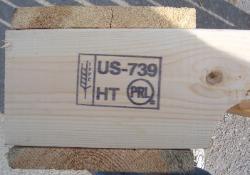
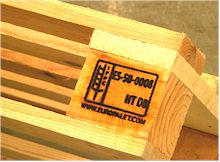
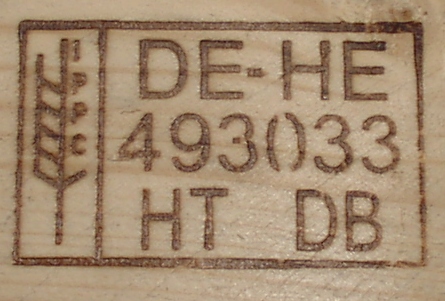
The ISPM15 stamp on boxes, crates, and pallets made from raw lumber indicates that the packaging has been heat-treated and complies with IPPC regulations.
Understanding ISPM 15 regulations can help you save on international shipping costs. ISPM 15 rules apply only to your packaging materials, not your exporting goods. The key requirement is avoiding non-manufactured lumber packaging (like untreated pallets or crates). Instead, opt for ISPM15-certified wood with the official IPPC mark, plastic alternatives, or manufactured wood products, such as plywood and particleboard.
We recommend using heavy-duty cardboard boxes. When paired with certified pallets, these comply with ISPM15. Consider delivering loose boxes to your carrier's terminal (CFS) for even easier compliance. They'll handle proper palletization using compliant materials for about $35−50 per pallet. They will transfer the compliance responsibility to the transnational shipping company that handles your load, ensuring your shipment meets all requirements.
Non-compliance can significantly impact your international shipping costs, including delays, mandatory fumigation, or cargo destruction. Processed lumber materials, such as plywood, are generally exempt; however, complex crates may still require documentation. When wood packaging is necessary, always verify that the ISPM 15 certification stamp is visible and legible.
If you palletize cardboard boxes at CFS, they can provide certified pallets, stack boxes on the pallet, and shrink-wrap everything, so your load complies with wood-packing regulations and your shipment moves smoothly to its destination.
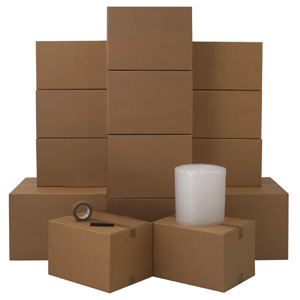
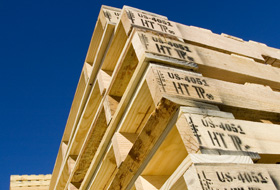
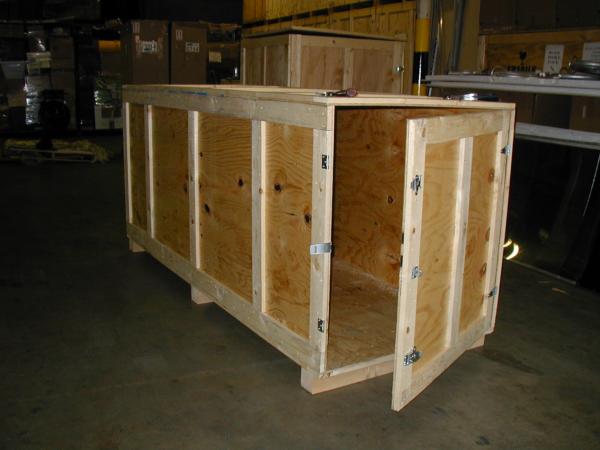


ISPM 15 compliance involves two critical components:
Before initiating international shipping from the United States, ensure that all ISPM 15-related paperwork is complete and available. Different countries enforce these regulations with varying degrees of strictness. Australia and New Zealand conduct comprehensive inspections, while transshipment hubs like Hong Kong and Singapore often require verification of documentation. The required forms may differ by destination country. U.S. freight forwarders should advise shippers on how to minimize the risk of compliance violations in global cargo transportation.
Since 2019, all ocean freight shipments departing from the USA to Oceania destinations during the Brown Marmorated Stink Bug (BMSB) season (September 1 through April 30 annually) must comply with strict requirements. International shipping companies cannot load any cargo during this period without a completed Fumigation Declaration, which we provide to shippers along with our instructions. This declaration must be submitted to the ocean freight carrier before loading. A licensed U.S. freight forwarder should guide customers in compliance.
Global sea freight carriers have established specific BMSB protocols for shipments from the USA to Oceania. These seasonal measures, designed to prevent the spread of invasive species, are detailed on the official websites of Australia's Department of Agriculture and Water Resources (DAWR) and New Zealand's Ministry of Primary Industries (MPI). Shippers should note that any costs associated with non-compliance, including mandatory onshore treatment in Australia or New Zealand, become the consignee's financial responsibility and can be substantial.
The regulations classify all shipments from high-risk origin countries, such as the United States, as potentially high-risk. For consolidated cargo (LCL shipments), if any shipment in a container is deemed high-risk, the entire container is automatically classified as such. This policy means international shipping companies must exercise caution when loading mixed consignments during the BMSB season.
Due to these strict requirements, global sea freight carriers now mandate that all shippers carefully assess their cargo against BMSB risk criteria before tendering shipments. Carriers require a signed declaration confirming this risk assessment before accepting any cargo for loading. This declaration process helps ensure affordable international shipping options remain available while maintaining biosecurity standards.
Typically, global ocean freight carriers will be providing fumigation services for LCL at load ports and gateways, and the following measures will be in effect:
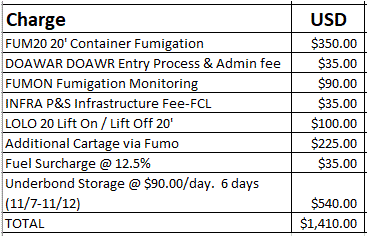
IF CARGO IS SCHEDULED TO ARRIVE IN AUSTRALIA OR NEW ZEALAND DURING THE BMSB SEASON, BUT SHIPPERS DO NOT PROVIDE A VALID FUMIGATION CERTIFICATE OR DECLINE TO FUMIGATE THEIR CARGO BY THE GLOBAL FREIGHT CARRIER, WE CANNOT SERVE SUCH SHIPMENTS.
|
|